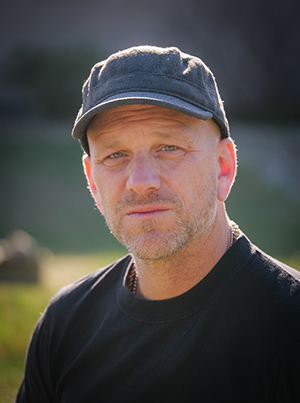
October 22ndDuty in its Place
I attended the funeral of my childhood pastor recently. I didn’t know him well. I’m not sure that knowing the pastor well would have even been on my childhood radar as something desirable or even possible. The pastor was kind of like the librarian or the Zamboni driver at the rink—someone who was just always there. His sermons were not particularly riveting, nor did he exude charisma from the pulpit. He was just this stable given in my life.
The one word that popped up a few times at the funeral was “duty.” In many ways, my former pastor’s ministry was defined by a deep desire to do his Christian duty. To follow Jesus faithfully. To have his character ever more conform to that of Jesus Christ. To set a good and holy example. I remember the sight of his little red sedan motoring down the highway on the way to yet another hospital visit. I remember him being measured and kind and morally serious. Like so many Mennonites before and since, his life seemed to be defined by duty.
I’ve been thinking about that word “duty.” On the one hand, in a time where “you do you” has kind of become our mantra, where self-expression and personal liberty have become our de facto gods (outside and inside the church), we could surely do with moving the needle back in the duty direction. To follow someone who is not ourselves. To do something because Jesus tells us to. To choose hard roads and narrow ways because we realize that we need to be formed by something higher than what emerges out of our sin-sick hearts.
And yet… Duty can also be experienced as a crushing burden. This is as true in the pietistic world of evangelicalism that I grew up in as it is in the more progressive space I now inhabit. Our calls to do our duty are no less insistent, even if they are mostly located in the realm ofissues dominating the social justice landscape. Whether it is relationships with our indigenous neighbours or our response to climate change or issues around gender and sexuality or adopting the correct position on Israel and Palestine or becoming more culturally diverse in our churches, the call in our denominational publications and gatherings is often very clear. Do your duty. Do better.
If we wish to speak of duty (either the pietistic or progressive versions of it) we must locate it in the appropriate theological context. It is a response of gratitude to the good news of the gospel. And Christian duty is attempted by human beings who only ever see in part, who remain sinners, and who therefore must remain humble. We do not know as much as we think we do. We are not (nearly) as righteous as we imagine ourselves to be. We often make things worse when we are convinced that we are making things better. We regress when we imagine we are making progress, and we move forward when it feels like we are failing. This is who we are and who we have always been.
Jesus did not come to pile burdens on already burdened people. He came to lift them. He came to give rest to the weary, mercy to those who keep on doing what they don’t want to do, liberation to the captives, and welcome to the prodigals. He came to proclaim and embody news that was genuinely good—that God’s love for sinners is the strongest, deepest, and truest given in the universe. God help us if we reduce this to some version of “do better.” Duty has its place. But its place is and must only be the response of love to Love.